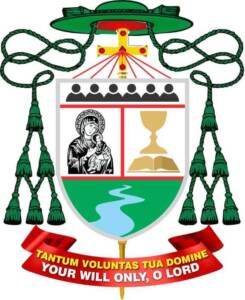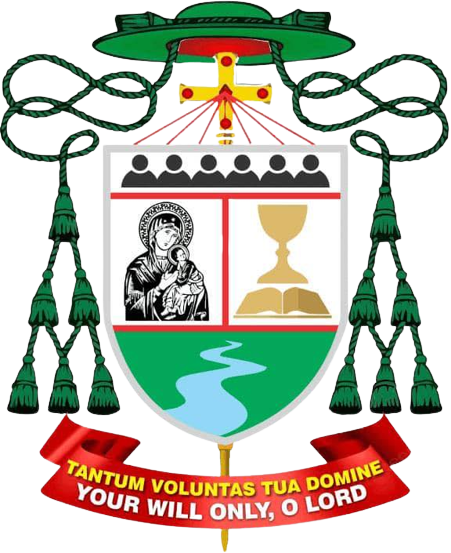 It remains true that prior to the creation of the ecclesiastical territory in the Niger Delta region of Nigeria, there was a missionary enterprise. The first wave of missionary contact was under the protectorate of Portugal, between the 15th and 18th centuries, mainly by Capuchin and Augustinian missionaries.
It remains true that prior to the creation of the ecclesiastical territory in the Niger Delta region of Nigeria, there was a missionary enterprise. The first wave of missionary contact was under the protectorate of Portugal, between the 15th and 18th centuries, mainly by Capuchin and Augustinian missionaries.
Following the pattern of church–state relations, missionaries who called at the kings’ court sought to convert the kings, and from the king, they attempted to make the populace Christians. At times, the rulers encouraged mission work and paid for the maintenance of the missionaries.
Early Christian Community in Warri
Indeed, as of the 16th century, Warri had a flourishing Christian community, as many of the populace were professing Christians. This truth is contained in the following testimony recorded in 1644: In the city of Warri, there was a church with an altar, a crucifix, statues of Mary and the Apostles, and two candlesticks alongside.
The black people came into this church with rosaries constantly in their hands, just as the Portuguese do. This initial missionary enterprise crumbled due to various factors, and a new missionary endeavour emerged in the 20th century, powered by the S.M.A. Fathers of the Irish Province.
Educational Evangelisation
It is pertinent to remark here that the S.M.A Fathers adopted the school system as a means of evangelisation. As they taught the people how to read and write, they also included religious instructions as part of the school’s curriculum. Some of these schools include:
- St. Joseph Ozoro
- St. Peter Cleaver Aghalokpe
- St. Kelvin Kokori
- St. Vincent Okwagbe
- St. Ita Sapele
- St. Ambrose Usiefurun
- St. Edna, Agbarho
- St. Theresa Ughelli
- Notre Dame Ozoro
- Our Lady Efurrun
- Mater Dei, Ashaka amongst others
Priests like Fr. Luigi Cavegnera, Patrick Shine, Danny O’Connell, and Folley were pioneer missionaries.
Missionary Activities
In this light, missionary priests and teachers in the schools were also involved in pastoral activities within and outside the schools. Chapels and churches were built to cater to the spiritual wellbeing of the students and the villagers in the neighbourhoods. It was such stations that gradually evolved into parishes in some places, thus evangelisation and growth of the church blossomed.
Creation of Warri Diocese
Therefore, with a flourishing Christian community, His Holiness, Pope Paul VI, created the Diocese of Warri from the then Old Benin Diocese on 10th March 1964. At its creation, the Warri Diocese had a total of eight parishes:
- In Warri, Aragba, Ashaka, Sapele, Okpara Inland, Ozoro, Ughelli, and Bomadi.
When the diocese was created, it had the late Msgr. A Obine, the late Msgr. J. Efebe, the late Fr. P. Garriaga, the late Msgr. S. Umurie, the late Fr. P. Onogwe, the late Fr. V. Obudu, Msgr. S. Ogbeide, and Msgr. P. Nyowheoma as diocesan priests.
These, together with S.M.A priests like Frs. Sean Ryan, Bill Power, Dan Cashman, F. Convey, J. Brown, J. Cadogan, James Higgins, B. Dunning, all assisted the late Bishop Lucas Nwaezeapu (the first bishop) in the work of evangelisation and to put the new diocese on a strong footing.
Growth and Expansion
With the growth in the Catholic population, the three Local Government Areas of Bomadi, Burutu, and Patani were excised from the Warri Diocese to form part of what is now the Apostolic Vicariate of Bomadi.
Therefore, geographically, the diocese, which is both land and riverine, covers sixteen Local Government Areas of Delta State, including:
- Warri South
- Warri South West
- Warri North
- Uvwie
- Ethiope West
- Ethiope East
- Sapele
- Okpe
- Ughelli North
- Ughelli South
- Isoko South
- Isoko North
- Ndokwa West
- Ndokwa East
- Ukwani
It encompasses a landmass of 10,650 square miles. Out of a total of 2,614,857 (approx.), it has a Catholic population of 186,298 (approx.). Since its inception on 17th March 1991, the diocese has had the following Bishops:
- The late Most Rev. Dr. Lucas Nwaezeapu
- The late Most Rev. Dr. Edmund Fitzgibbon
- Most Rev. Dr. Richard Burke
- Our Bishop Most Rev. Dr. John Oke Afareha, ordained on 14th May 1997 as an auxiliary Bishop and installed as the Bishop of Warri on 30th March 2010.
Today, to the glory of God and the new evangelisation in the diocese as implemented by the Bishop, Most Rev. Dr. John Afareha, there are 116 diocesan priests, 35 religious Priests, and 75 Religious Sisters working in the diocese with 116 parishes and chaplaincies.
She also has 89 Major Seminarians, 215 Minor Seminarians, and 236 salaried and voluntary catechists. Seven deaneries of Warri, Sapele, Ughelli, Kwale, Oleh, Udu, and Effurun foster a better pastoral care of God’s people in Warri Diocese and the promotion of more effective administration, pastoral planning, and activity.
Presence of Various Congregations
The Warri Diocese also enjoys the presence and ministry of priests from the Congregation of the Holy Ghost (C.S.Sp.), the Augustinians (O,S.A), the Redemptorists (C.SS.R.), Society of African Missions (S.M.A), Missionary Society of St. Paul (M.S.P), one indigenous female congregation, Missionary Sisters of Jesus and Mary MSJM, founded by the present Bishop Afareha, and other Female Religious Congregations of Our Lady of Apostles (O.L.A.), the Immaculate Heart of Mary Sisters (I.H.M.), the Eucharistic Heart of Jesus Sisters (E.H.J.), the Religious Sisters of Charity (R.S.C), the Daughters of Charity of St. Vincent De Paul (D.C), the Parish Visitors of Mary Immaculate (P.V.M.I), the Franciscan Sisters (OSF), and Sisters of the Society of the Holy Child Jesus.
To God be the glory; the diocese continues to strive towards greatness, and by the grace of God, will continue to strive. Hence may His name be praised both now and forever. Amen.
